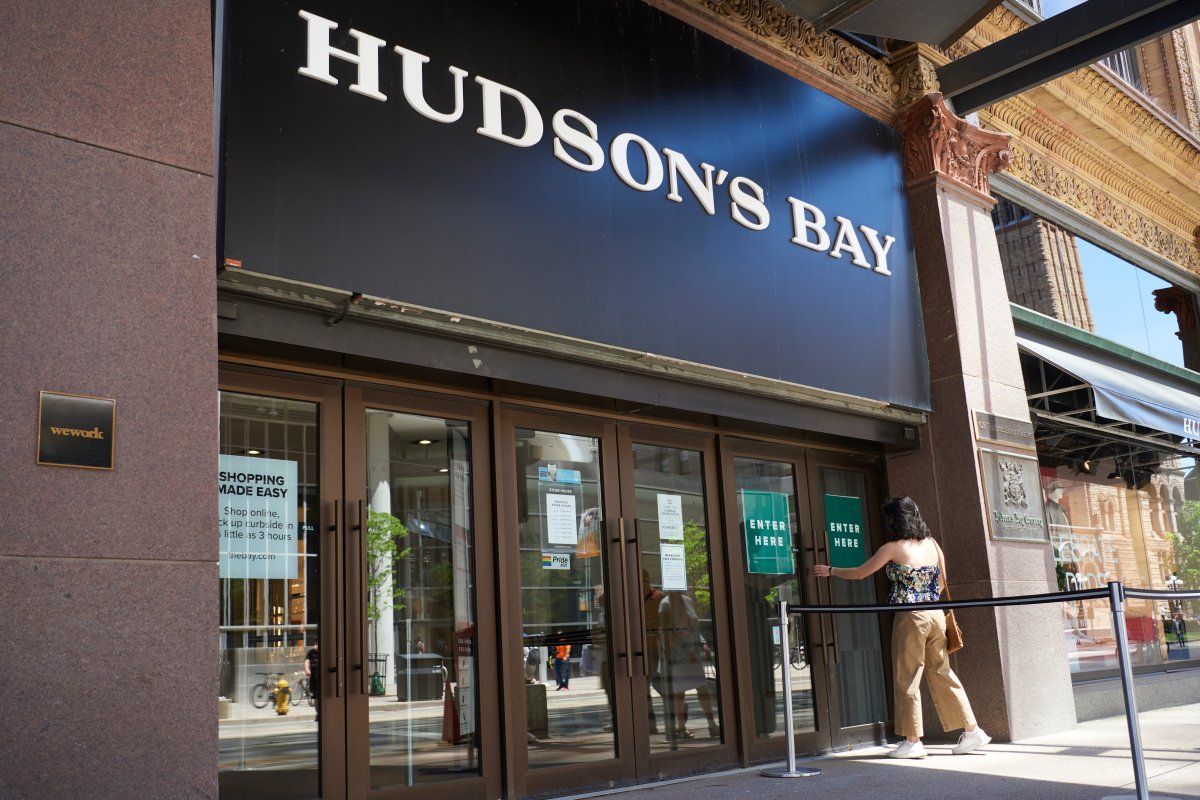TORONTO — Hudson’s Bay hopes to capture customer interest with a revamped loyalty program that includes a new app and personalized offers.

The Toronto-based department store chain said Tuesday that the changes to its rewards offering are meant to refresh the program to better meet current shopping habits.
“Hudson’s Bay was one of the first to introduce a rewards program in Canada, and since then we have seen tremendous change in how people are shopping, how they are prioritizing their purchases, and what they are looking for in a loyalty program,” said Kevin Parry, Hudson’s Bay’s vice-president of credit and loyalty, in a statement.
“We wanted to level up our rewards game.”
The program comes amid the effects of stubbornly high inflation, increasingly pushing shoppers to seek out deals amid higher price sensitivity.
The rewards program will be structured around three tiers shoppers can work their way through, earning more points and faster with each level.
Shoppers start at the Hudson’s Bay Rewards level, which gives them one point for every dollar spent in stores or online at Hudson’s Bay and Zellers, as well as by using their Hudson’s Bay Mastercard.
Once they have spent $400 within a year, they move up to the Rewards Plus level, giving them 1.5 points for every dollar spent. The final level, Rewards VIP, kicks in at $1,200 of spending within a year and offers two points for every dollar spent.
Point redemptions start at 1,000 points, which grants $5 off and can be applied to taxes and shipping costs as well as to an item itself.
In addition to purchases, shoppers can earn points through personalized offers delivered through the app and based on individual preferences, shopping habits and “quests” completed by the user.
A quest may ask a shopper, for example, to build a head-to-toe outfit from Hudson’s Bay.

There will also be bonus events where shoppers can earn double or extra points by shopping on certain days or redeeming fewer points for a higher discount.
Tandy Thomas, an associate professor and distinguished faculty fellow of marketing at Queen’s University in Kingston, Ont., saw the new loyalty program’s escalating levels of rewards and quests as a “great idea” because consumers are “incredibly price sensitive right now.”
Both elements bring fun to the brand, which she said is much needed.
“It’s a very stale brand. The perception of consumers hasn’t changed very much throughout their entire life,” she said.
“If you need a new set of dishes, that’s maybe where you go. If you want a new set of fun dishes, that is not where you go, so anything they can do to show that their brand and their offerings are more engaging and more exciting … will be good for them.”
Rewards revamps such as this one are becoming more common as banks and retailers look more closely for ways to boost sales and membership bases to weather current economic turbulence. Data about when and how people spend is also valuable to the companies.
Cineplex Inc., Scotiabank and Empire Company Ltd. revamped the Scene program last year and BMO Financial Group bought Air Miles in Canada this past June.
In early August, Royal Bank of Canada expanded its Avion program to all Canadians regardless of where they bank, and to attract sign-ups, offered an exclusive batch of tickets to Taylor Swift’s forthcoming concerts in Toronto to members.
Hudson’s Bay’s reimagined loyalty program comes as the company has been working on several initiatives to streamline its operations and build excitement around its offerings.
In recent years, it brought in a new collection from Forever 21, added shops for outdoor goods retailer MEC to some stores and partnered with baby gear startup Rebelstork on a branded resale program.
Perhaps its most high-profile change came in March when it revived discount chain Zellers a decade after it closed most of its locations. The Zellers comeback has taken the form of pop-up shops within Hudson’s Bay locations selling a blend of private-label housewares and other goods and rivaling some of the products one might find at Ikea and Walmart.
However, it also let go of around 250 employees in January, and another 250 in May. The corporate role cuts were meant to help it navigate “significant external pressures,” the company said in January.



Comments